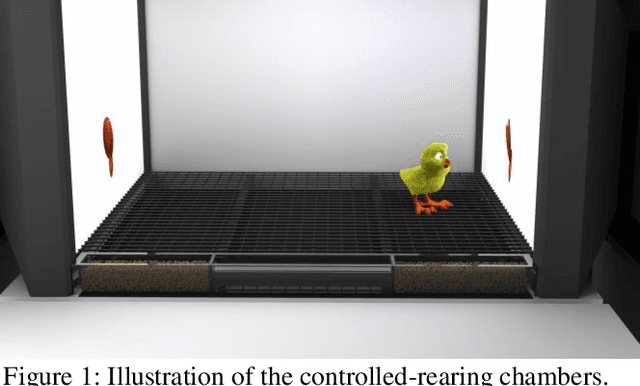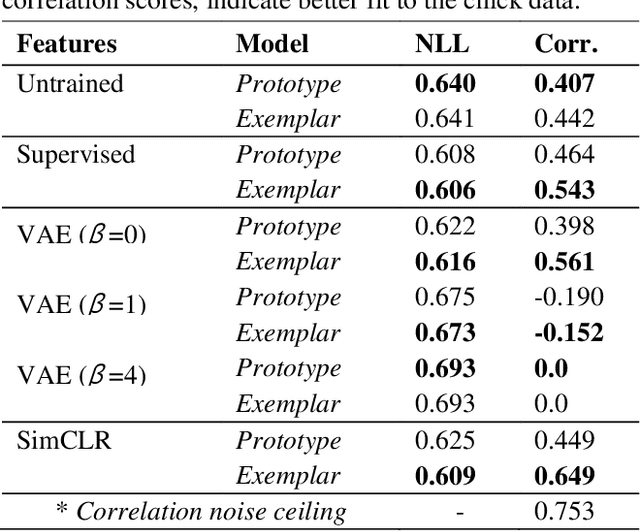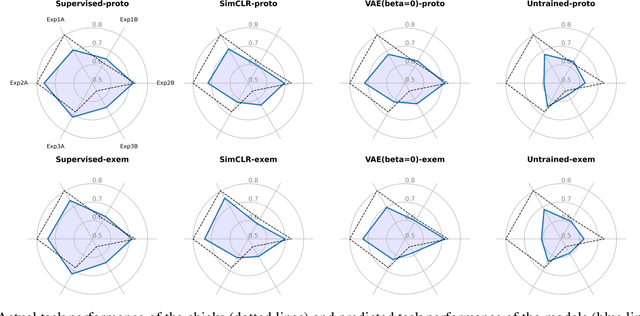Modeling Object Recognition in Newborn Chicks using Deep Neural Networks
Paper and Code
Jun 14, 2021



In recent years, the brain and cognitive sciences have made great strides developing a mechanistic understanding of object recognition in mature brains. Despite this progress, fundamental questions remain about the origins and computational foundations of object recognition. What learning algorithms underlie object recognition in newborn brains? Since newborn animals learn largely through unsupervised learning, we explored whether unsupervised learning algorithms can be used to predict the view-invariant object recognition behavior of newborn chicks. Specifically, we used feature representations derived from unsupervised deep neural networks (DNNs) as inputs to cognitive models of categorization. We show that features derived from unsupervised DNNs make competitive predictions about chick behavior compared to supervised features. More generally, we argue that linking controlled-rearing studies to image-computable DNN models opens new experimental avenues for studying the origins and computational basis of object recognition in newborn animals.
 Add to Chrome
Add to Chrome Add to Firefox
Add to Firefox Add to Edge
Add to Edge